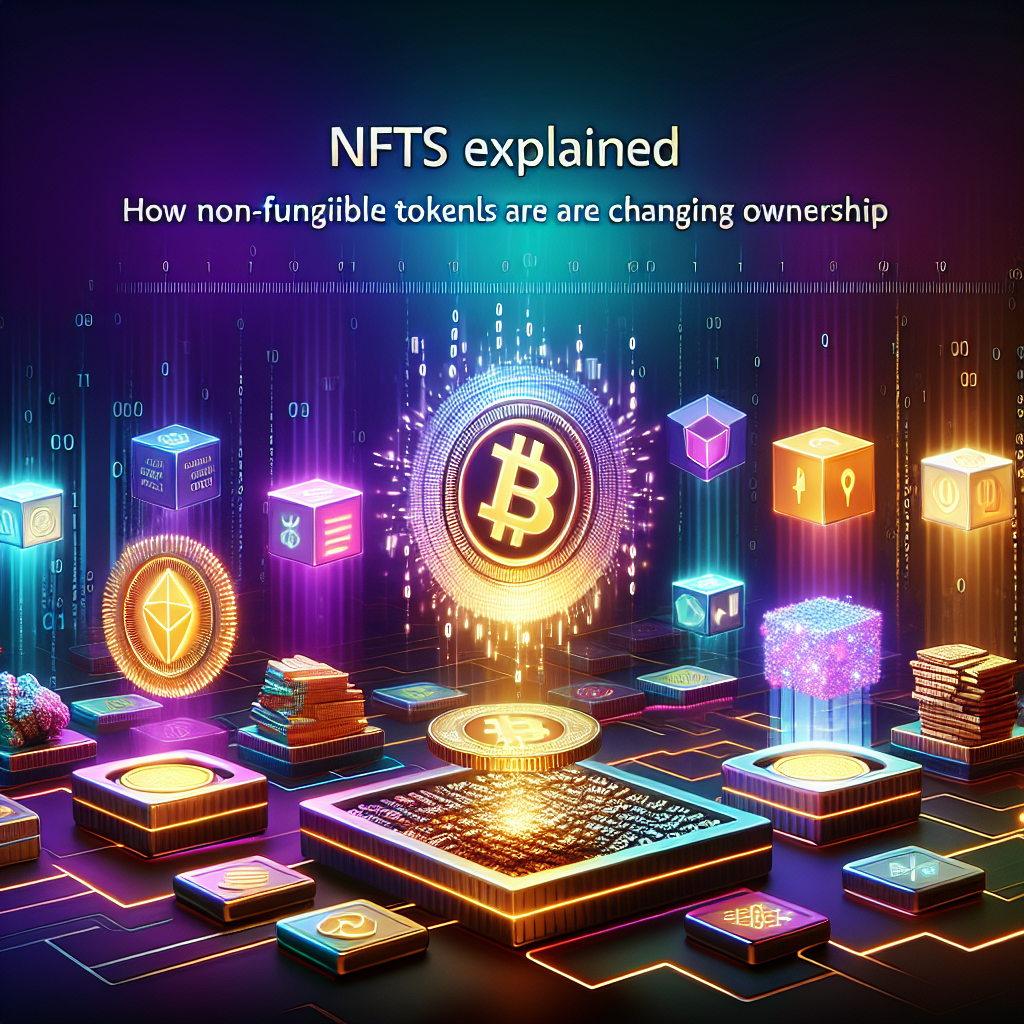In recent years, non-fungible tokens (NFTs) have emerged as a groundbreaking technology that is redefining the concept of ownership in the digital age. While the world was first introduced to NFTs through digital art and collectibles, their applications extend far beyond, impacting various industries such as gaming, music, real estate, and even intellectual property rights. This article aims to demystify NFTs and explore how they are changing the landscape of ownership and value in the digital realm.
What Are NFTs?
At their core, non-fungible tokens are digital assets that represent ownership of a unique item or piece of content. Unlike cryptocurrencies like Bitcoin or Ethereum, which are fungible and can be exchanged for one another, NFTs are distinct and cannot be replaced on a one-to-one basis. This uniqueness is what gives NFTs their value; each token contains specific information embedded in smart contracts on the blockchain, verifying its authenticity, ownership, and transferrable rights.
Key Characteristics of NFTs:
-
Indivisibility: NFTs cannot be divided into smaller units. You either own the entire token or you don’t own it at all.
-
Ownership: Ownership of an NFT is recorded on the blockchain, making it easily verifiable and secure from counterfeit.
-
Interoperability: Many NFTs are built on standards like Ethereum’s ERC-721 or ERC-1155, which allow them to be used across various platforms and applications.
- Scarcity: Creators can limit the number of NFTs they issue, creating scarcity similar to limited-edition art. This scarcity can drive up the value of certain tokens significantly.
How NFTs Are Changing Ownership
1. Democratizing Art and Collectibles
Traditional art ownership often requires significant financial investment and is usually limited to a small group of collectors. NFTs democratize access to art, allowing anyone to own a piece of digital artwork that might have seemed unattainable before. Platforms like OpenSea and Rarible enable artists to mint their work directly into NFTs and sell them globally, removing intermediaries and providing creators with a larger share of the profits.
2. New Revenue Streams for Artists and Creators
NFTs provide artists with innovative ways to monetize their work. For instance, artists can program royalties into their NFTs, ensuring they receive a percentage of any future sales. This ongoing revenue model is revolutionary, allowing creators to benefit from their work over time, rather than receiving a one-time payment.
3. Transforming Gaming and Virtual Experiences
In the gaming world, NFTs are changing how players own and trade in-game assets. Players can truly own their items (such as skins, weapons, or characters), participating in an economy where they can buy, sell, or trade assets across different games. This shift is leading to the rise of "play-to-earn" models, where players can earn real income through gameplay.
4. Reinventing Real Estate
The real estate sector is also exploring the potential of NFTs. Virtual properties in metaverses can be bought and sold as NFTs, while traditional real estate can potentially leverage NFTs for secure and efficient contracts. Blockchain technology ensures that property rights and ownership are traceable and secure, streamlining the buying and selling processes.
5. Intellectual Property and Rights Management
NFTs have the potential to simplify and secure rights management in creative industries. By coupling digital assets with clear ownership rights, creators can ensure that they retain control over their intellectual property. This can reduce piracy and unauthorized use while empowering creators.
Challenges and Considerations
Despite their promising potential, NFTs are not without challenges. The environmental impact of blockchain technology, primarily due to energy-intensive proof-of-work systems, has raised concerns about sustainability. Additionally, the NFT market is highly speculative and can be volatile, with prices fluctuating dramatically. Issues regarding copyright infringement and the potential for scams also pose risks for buyers.
Conclusion
As non-fungible tokens continue to evolve, their transformative impacts on digital ownership and creative industries are undeniable. By offering new avenues for artists, gamers, and creators to monetize their work, NFTs are not just altering the way we think about ownership — they’re reshaping entire economic models. While challenges remain, the future of NFTs offers exciting possibilities, marking a significant shift in how we interact with digital assets and ultimately redefining the very concept of value and ownership in the digital world.

